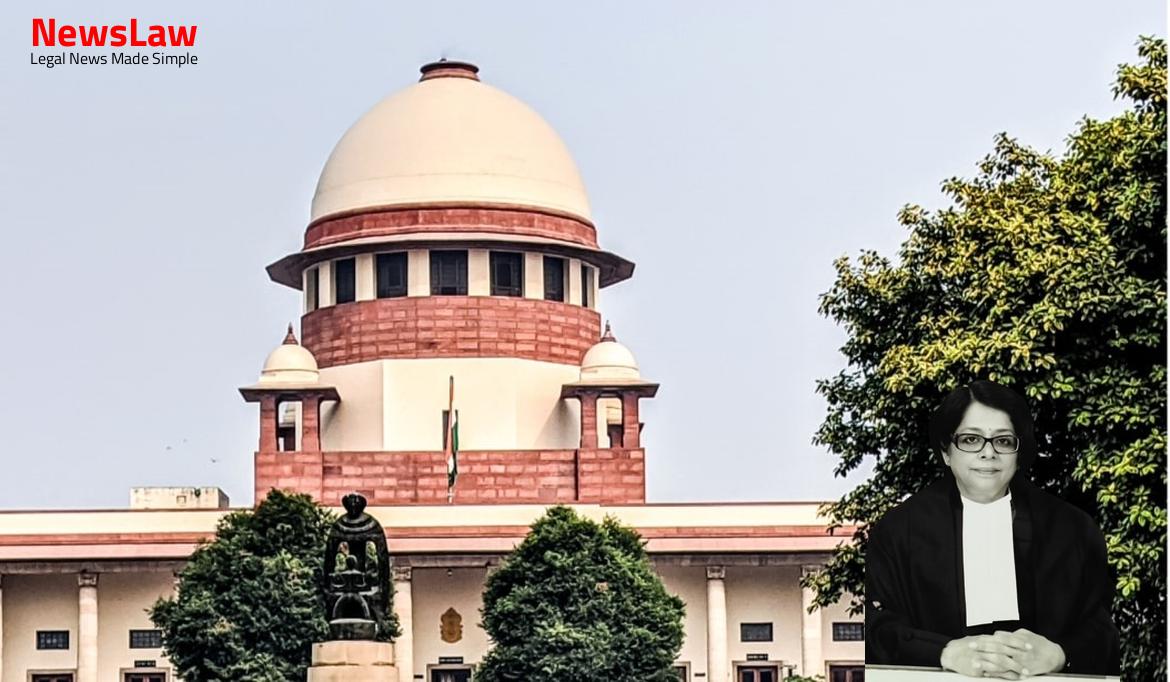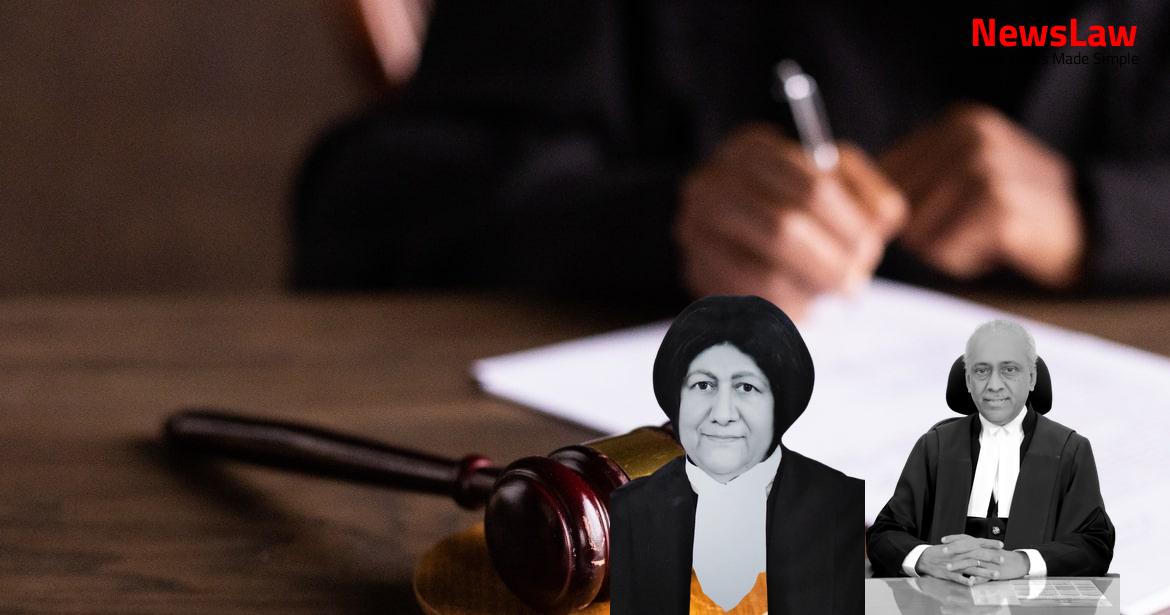In a significant legal ruling by the Supreme Court of India, a case regarding eviction procedures between a landlord and a tenant has been decisively settled. The judgment provides clarity on the required procedures and legal considerations in such matters, without mentioning the specific parties involved. This landmark decision will have far-reaching implications for future eviction cases across the country.
Facts
- The appellant, as the landlord, sought permission from the Rent Controller to evict the tenant who was a habitual defaulter.
- After obtaining permission, the appellant issued a notice of termination of tenancy under Section 108 of the Transfer of Property Act.
- The Slum Authority granted the required permission for the eviction.
- A civil suit was filed by the appellant seeking eviction of the tenant after securing permission from the Slum Authority.
- The tenant objected citing the Maharashtra Slum Areas Act, stating that permission from the Slum Authority was mandatory.
- The lower court extensively examined the matter, and the appellant failed to provide substantial proof to challenge the lower court’s findings.
- The civil suit seeking eviction reached finality with a decree passed by the Appellate Court.
- An appeal challenging the eviction order was dismissed after scrutiny by the Appellate Authority.
- The Appellate Authority also considered the availability of alternative accommodation for the tenant as per the Act.
- The appellant’s wife being in service was mentioned as part of the arguments regarding alternative accommodation.
- The Slum Authority reconsidered the permission after an order of remand and granted permission again for the eviction suit.
- The subsequent appeal by the tenant challenging the Slum Authority’s decision was also dismissed after due consideration.
Also Read: Anticipatory Bail Application in Different Cases: Landmark Judgment by the Supreme Court of India
Analysis
- The Slum Authority did not consider relevant factors mentioned in Section 22(4) of the Slum Act, 1971.
- The Appellate Authority’s consideration of these factors does not validate the initial oversight by the competent authority.
- Legal procedures must be strictly adhered to, and orders must be passed in accordance with the provisions of the law.
- The competent authority’s order was found to be lacking proper consideration and was deemed cryptic.
- The Appellate Court’s decree, which was not challenged and attained finality, was a relevant part of the case.
- The High Court’s view was considered incorrect as the Rent Controller’s decision had already been finalized.
- Bona fide need for eviction may involve comparative hardship and the availability of alternative accommodation.
- The case had reached finality in terms of legal proceedings.
Also Read: Supreme Court of India Dismisses Writ Petition on Arms Export to Israel
Decision
- The High Court had no reason to interfere in its jurisdiction under Article 227 of the Constitution of India.
- The judgment and order dated 19.06.2014 passed by the High Court in Writ Petition No. 2199 of 2003 was set aside.
- The order dated 31.10.2002 passed by the Appellate Authority was restored.
- The appeal was allowed with no order as to costs.
Also Read: National Task Force for Healthcare Safety: Ensuring Dignity and Protection for Medical Professionals
Case Title: KUMUD W/O MAHADEORAO SLUNKE Vs. SHRI PANDURANG NARAYAN GANDHEWAR THROUGH LRS .
Case Number: C.A. No.-004873-004873 / 2019



